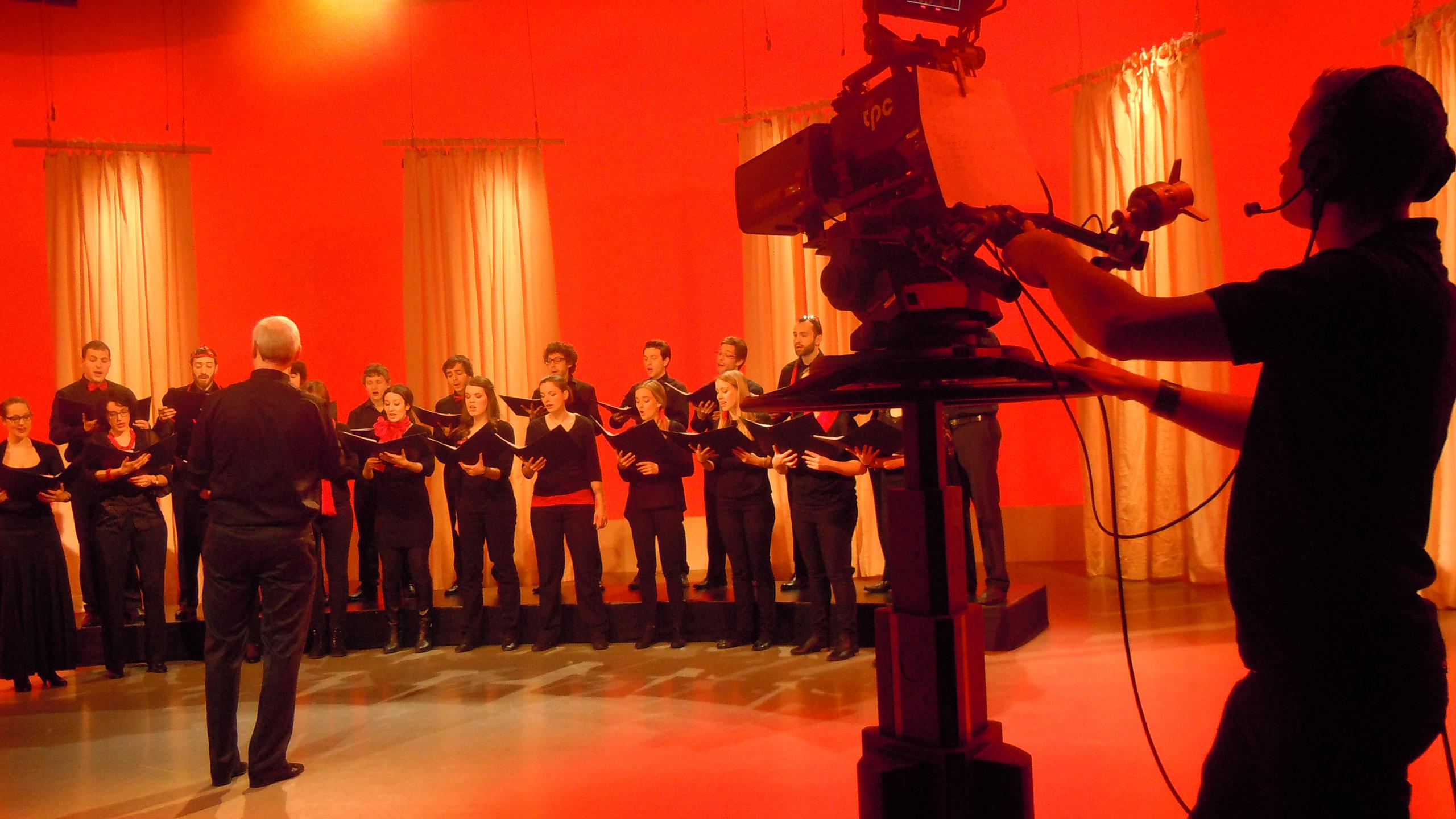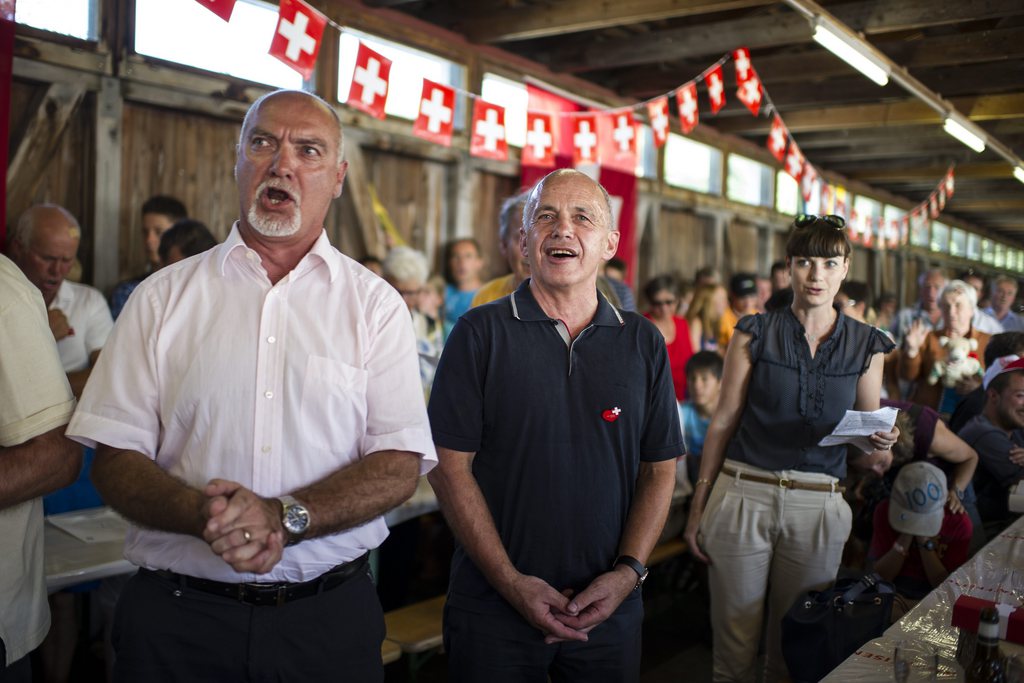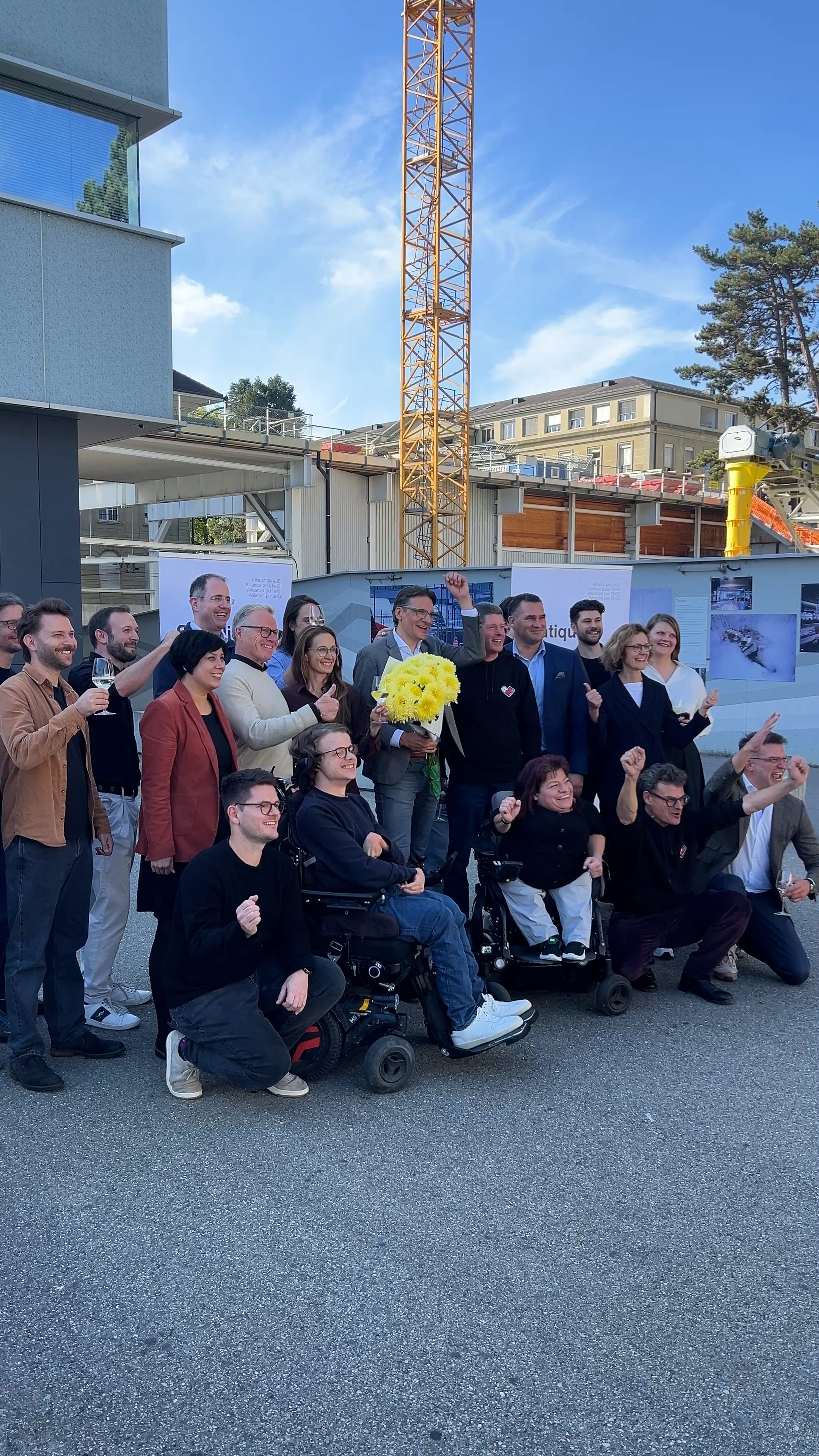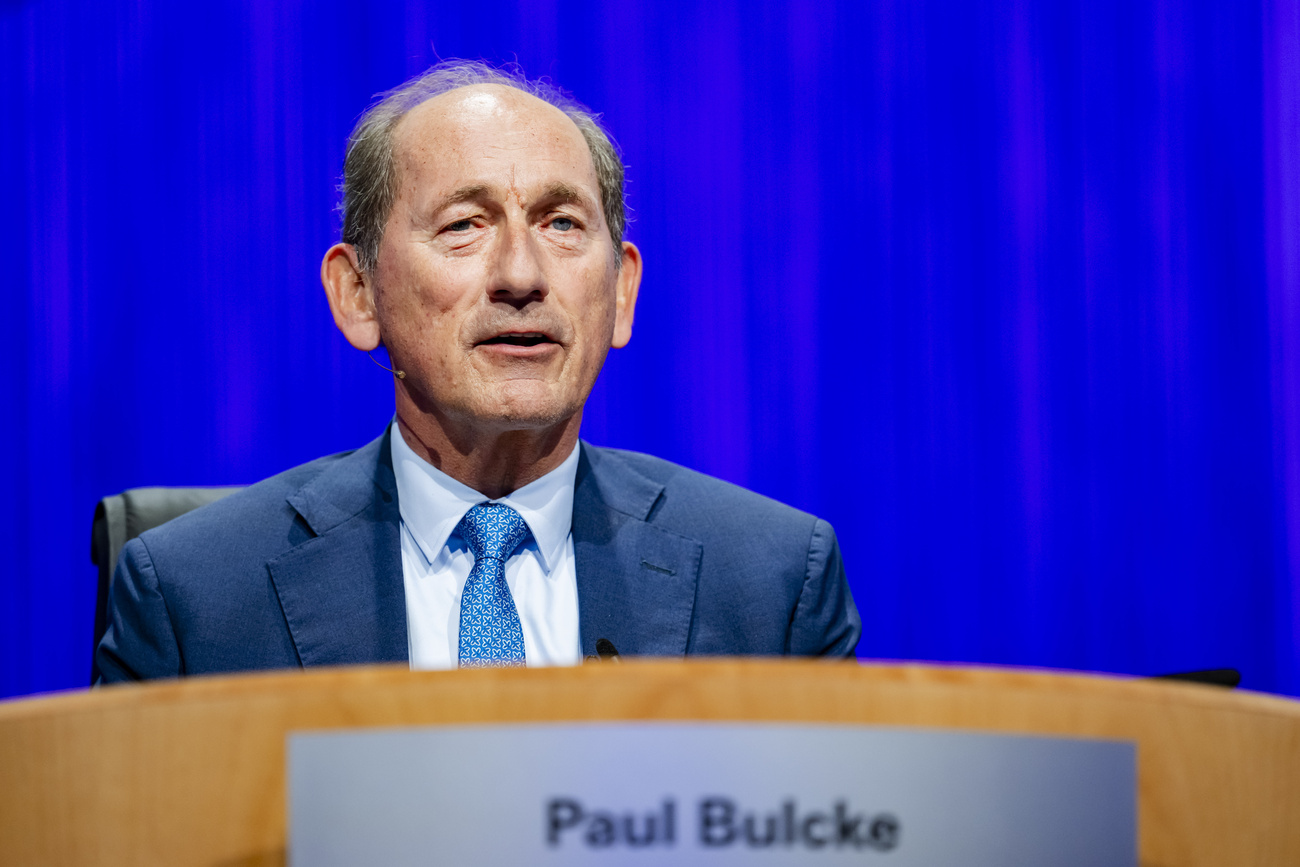
Voting opens on six potential new Swiss anthems

A shortlist has been put forward for a new Swiss anthem. Six semi-finalists have been chosen in the latest stage of a contest launched to create a song that all Swiss will be proud (and able) to sing.
The Swiss have long been ambivalent about their national hymn. Although many people say they like the music, many more say they can’t sing all four verses – or even the first verse – in one of Switzerland’s four national languages.

More
First three lines of the anthem in German, French, Italian and Romansh
“When you see how people in other countries know their national anthems by heart, and sing them with passion and with joy,” then you realise that Switzerland has a problem, says Jean-Daniel Gerber, president of the Swiss Society for the Common Good (SSCG), a charitable association promoting societal participation.
To address this problem, the SSCG organised a contest to create a new anthem. Entries had to be submitted in one of the national languages, with text reflecting the values in the preamble of the Swiss Constitution and a melody that resembles that of the current hymn.
It was important for the organising committee that the basic values of the country – values like liberty, democracy, neutrality, peace, solidarity, openness to the world, and responsibility for future generations – be contained in the anthem, said Gerber at Monday’s press conference introducing the semi-finalists.

More
Folk called on to fine-tune national anthem
The creative process
A number of people were inspired to create alternative national hymns. Between January 1 and June 30, 2014, a total of 206 usable entries were submitted – 120 in German, 69 in French, ten in Romansh and seven in Italian. The entries were evaluated by a panel of 30 judges from the four language regions. Six submissions were chosen as semi-finalists and translated into the other three languages.
Translating a German entry into French was “the most difficult job in my professional life”, says translator Odile Nerfin. “It was not only a text; it was also a melody. And I had to imagine how difficult it would be for people to sing this anthem together. It was really a hard job.”
One of the key criteria was that the new anthem be easy to sing – not just by a choir, but also by the average citizen on the Swiss national holiday, at sporting events, or on official military and political occasions.
The submissions were “very creative, from free jazz to musical”, says jury member Raphael Urweider, an author and musician. “But the longer we discussed, the more we felt it was important that the piece be worthy of an anthem. There were a lot of very nice entries in folk music style – really well done – but they just didn’t seem timeless enough.”
The voice of the people
Time hasn’t been a driving factor in the past. It took the Swiss 140 years to adopt the original German-language psalm as the official Swiss national anthem in 1981. Between 1894 and 1953 numerous attempts to have the hymn declared the national anthem were rejected because the Swiss government felt the decision should be based on popular opinion rather than government decree.
This time around, the Society for the Common Good has gone to the people first. The 24 videos of the Swiss Youth Choir singing the six contributions in the four official Swiss languages will be accessible for online voting from March 30 to May 15 in GermanExternal link, FrenchExternal link, ItalianExternal link and RomanshExternal link.
Three use the same melody as the original, two include some changes to the music, and one is a completely new composition. Here’s an example of Version E in Italian.

More
Option E in Italian
At the end of May, the three finalists will be announced. A second round of voting will follow between June and September. And on September 12, in a television broadcast of the Swiss Festival of Folk Music, the winner will be presented and its creator revealed.
In the years that follow, the association will attempt to build support for the winning composition, before presenting it to the Swiss government as an alternative to the current hymn. It still is unclear which body will have the power to decide whether to adopt a new hymn or if it will go to a nationwide public vote.
“There was no lack of opposition over the past months, from people who don’t want a new hymn,” says Lukas Niederberger, director of the Society for the Common Good. “But I have the feeling that when they see and hear these wonderful recordings, more than a few will change their minds.”

In compliance with the JTI standards
More: SWI swissinfo.ch certified by the Journalism Trust Initiative






































You can find an overview of ongoing debates with our journalists here . Please join us!
If you want to start a conversation about a topic raised in this article or want to report factual errors, email us at english@swissinfo.ch.